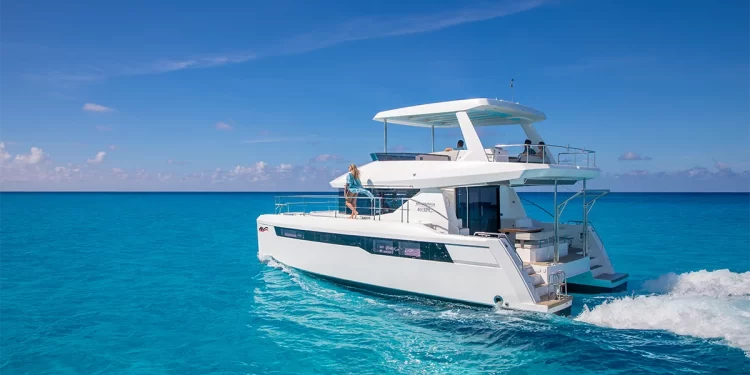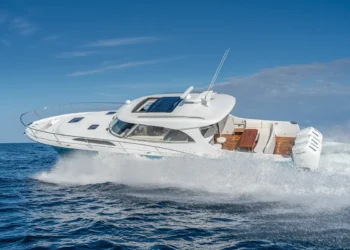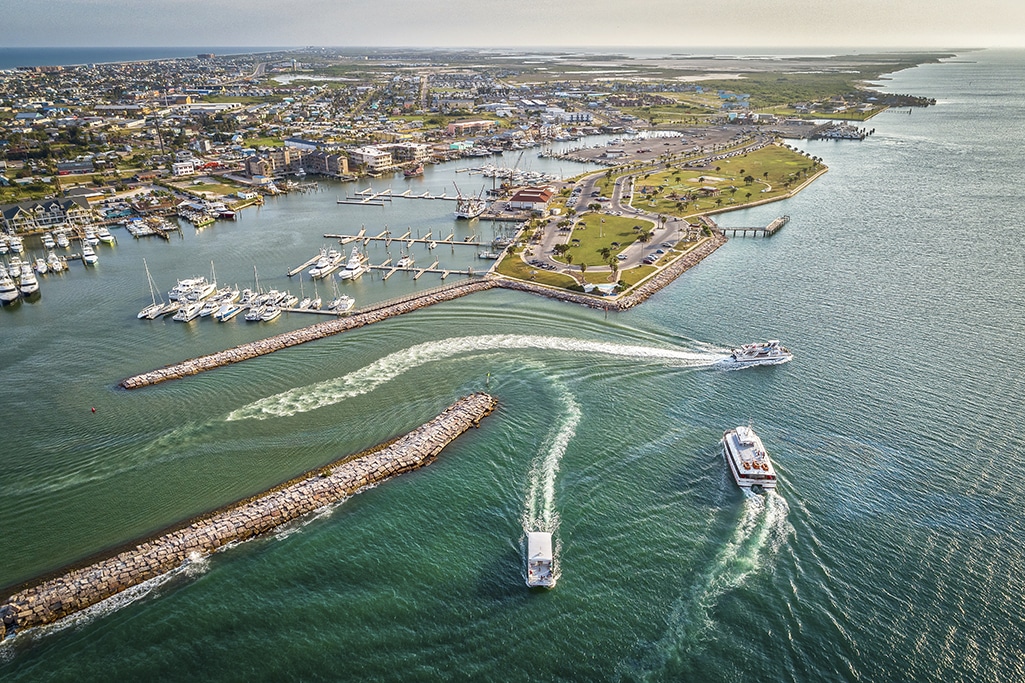Lay out a basic plan for your boating vacation prior to booking your trip.
Be it a sailing excursion to the Greek Isles or a weekend getaway in the Florida Keys, chartering is a natural fit for boaters looking to combine vacations and their love of the water. Let’s take a look at some basic considerations that can help make your charter that dream-of-a-lifetime vacation.
What type of charter are you looking for?
Are you planning a romantic getaway for two or a trip for the entire family? Regardless, always discuss expectations, routes, common interests, expenses, and the overall pace of the voyage well in advance to ensure a sense of peace and harmony. List all the must see, must do, must eat at places, but always be flexible enough to change plans due to bad weather or to take advantage of unexpected opportunities.
Also Read
Cruiser Luxury and Performance: Step Aboard the ECLIPSE 505 Shadow
The ECLIPSE 505 Shadow steps out into the sun. Snuggled in a corner dwarfed by large yachts at the outer edge...
What kind of boat should you charter?
Choose a vessel you can handle confidently, one that’s comfortable, user-friendly, and roomy enough to provide some modem of privacy as required (couples, single guests, etc.). Adhere to recommended capacities and avoid overcrowding—tripping over sleeping bodies sprawled about the main cabin sole while trying to get a breath of air or check the set of an anchor during the night gets old fast.
Book your charter well in advance. You’ll have a larger selection of boats and a better chance of getting one that meets your needs. Older boats (greater than five years when it comes to chartering) may be cheaper, but can also mean dealing with worn gear, breakdowns, and other such headaches. You’ll likely pay more for a newer boat, but there’s typically less worry and you get to use the latest gear.
Bareboat or crewed?
Bareboat charters (meaning without a hired captain or crew) offer the ultimate in freedom and independence; however, you’ll have to show prior experience on a comparable vessel before being turned loose by the charter company.
Expect to demonstrate basic boat handling skills during your vessel orientation session prior to your departure. Most of this checkout session will be spent familiarizing you with the boat’s systems, covering the local cruising grounds and answering any questions you may have concerning navigation, anchorages, prevailing weather conditions, clearing customs, or any part of your desired itinerary.
A hired captain can provide a wealth of boating experience and local knowledge, ensuring you get the most from your charter vacation. It’s also a stress-free way to learn and gain charter experience, as you’ll be able to participate in the operation of the vessel without all the worries. Many charter companies offer “day captains” that get you from anchorage to anchorage and then leave you to enjoy the evening and morning on your own.
Subscribe Here For More Boating Content
Charter strategies and tactics
Choose a charter company with a proven track record, preferably a bonded company that’s been in business at least 10 years. Longevity isn’t a guarantee of satisfaction, but it will at least help avoid problems associated with start-ups. Ask about the age of the boat, equipment, discounts, all costs, and don’t be afraid to quote competitor’s prices to negotiate a deal or ask for references from past clients.
Charter rates vary for a number of reasons, but don’t automatically assume high season prices guarantee the best boating. Many parts of the Caribbean, for example, offer fantastic sailing in early spring (the off season) with the bonus of lower prices and less crowded anchorages. Keep in mind that chartering during holidays or to attend special events can be a blessing or a curse in the form of crowded anchorages, limited berths, and overwhelmed services.
Pack light, but smart
Most of us bring way too much “stuff” when traveling, but this can be especially problematic when dealing with the smaller confines of a boat. Bring the essentials for your vacation area (sun protection in the tropics, warm hats and gloves in cooler climes), but be as selective as possible. This also goes for the luggage itself. Use duffel bags rather than hard suitcases (which are a pain to stow once on board).
Provisioning
While charters closer to home may offer the option of bringing your own supplies, distant adventures will involve either pre-arranged provisioning or self-provisioning at local grocery stores upon arrival.
Charter companies typically provide a list of options to choose from if they do the shopping. The prices are generally the same as shopping by yourself and you avoid wasting precious vacation time in the grocery store as well as the added expense of cab fare to transport everything back.
Regardless of how you provision, remember that you (and the cook) are supposed to be on vacation, so plan the menu to include frequent excursions ashore to sample both the local cuisine and hospitality. Most of all, relax and have fun.
-by Frank Lanier



















